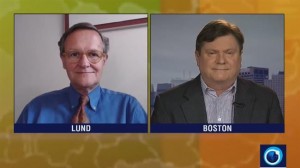Archive for July, 2017
The BAN Treaty – why it’s significant and why some have isolated themselves from civilisation
By Jan Oberg
The Debate on PressTV with Jim Walsh, MIT
Unfortunately this video seems to have been taken down by PressTV, temporarily or permanently.
And here the link to a partial transcript
The BAN Treaty – Iran and other countries
By Jan Oberg
Comment on PressTV
North Korea: A danger that can easily be contained
By Gunnar Westberg
TFF Board member
An easy Q & A session:
Question: What does Kim Jong-un and the leaders of DPRK, the Democratic People’s Republic of Korea want?
Answer: Security for themselves, power and privileges.
Q. Are their privileges and their leadership threatened?
A: Yes. From outside and from inside.
Q: What outside danger?
A: An attack from the USA.
Q: Is there a real threat from the USA?
A: It seems so, from the perspective of Pyongyang. There are US exercises by air and navy, showing off the superiority of the US forces. And verbal threats.
Q: Why have DPRK developed nuclear weapons?
A: The leaders believe, just like in other nuclear power states, that nuclear weapons are effective deterrents.
Q: What is the danger from the inside?
A: A revolt from the repressed and destitute masses.
Q: How can the leaders prevent a revolt and keep their power?
A: By force, by fear but mostly by pointing at the danger of an attack from the South. There is one thing the people fear more than their leaders: A war. Nuclear weapons give a feeling of security, just as the US Ambassador to the UN, Ms. Nikki Haley, explained for the USA.
Q : How can we decrease the danger from DPRK?
A: There are two main ways:
1. Stop the military provocations.
2. Start negotiations.
In 1994 a “framework” of an agreement was reached and DPRK stopped their nuclear weapons program for several years. When that agreement gradually fell apart, former President Jimmy Carter helped negotiate a second agreement , which unfortunately was not accepted by President George W. Bush . Today the situation is more difficult, but if the DPRK leaders feel assured that they will not be attacked, that there will be no attempt of a regime change, progress can be achieved. And DPRK leaders can always be bought.
However, there is one great danger: If the threat from the south is removed, the people of DPRK may start a revolt, the government may fall and masses of people from North Korea will start walking, into South Korea and into China.
Maybe that is the reason the USA does not want to solve the “problem of North Korea”? Or is it just the need for an enemy?
One thing is obvious: Military threats against North Korea strongly supports the leaders of the country and increases the risk of war, maybe a nuclear war.
Gunnar Westberg
On Gorbachev and Reagan and Putin and Trump
By Jonathan Power
July 4th 2017
Here I am in Moscow – three days ago – standing in front of a statue of Presidents Ronald Reagan and Mikhael Gorbachev to celebrate the unveiling of a statue crafted by the master sculptor, Alexander Bourganov.
I’m the only journalist invited to speak – and after I go with the others to drink Russian champagne. I talk to a group of students and a younger member of the Russian media contingent. I’ve also invited along a journalism student I met late at night on an almost empty street when I stopped to ask the way. She insisted on walking me to my hotel. To my surprise she accepted my offer of a drink and we spent an hour talking about her course and the Russian press.
At the airport in the Aeroflot lounge I talked to one of the hostesses. It turned out she was a journalism graduate. On the plane I sat next to a Russian student studying in America.
In a quick three days in Moscow these chance meetings (although one TV producer is a friend) enabled me to get a snapshot of what some 30 year-olds and younger think about the government and the media.
Five out of nine were highly critical of President Vladimir Putin for one main thing: his overriding influence on the media. However, it is true that there remains one TV network and one radio network and a couple of newspapers which do not toe the line.
At the journalism degree course at the prestigious Moscow State University one tells me that many in her class are disillusioned by the media and wonder about the jobs available that are not in the hands of the government.
Then it is my turn to tell them something. Read the rest of this entry »
UN Peacekeeping gets tougher
By Jonathan Power
The United Nations is often scapegoated for the falling short of its peacekeeping troops and deployments. Why are they not in Syria or Yemen, Libya or along the Palestinian/Israeli border? Why did the US and the UK make it impossible for the few UN troops present at the onset of the genocide in Rwanda to have their numbers significantly augmented? As a result those few on the ground had no choice but to withdraw when some of their members were killed and their genitals stuffed in their mouths.
All good questions if not easy to answer. In Syria, for example, where exactly would they be deployed?
But a better question is why didn’t they go in at the beginning of the civil war when things weren’t so complicated and Al Qaeda and ISIS were not around?
Then there is the bad behaviour of UN troops.
In Mali, French peacekeepers were found to have engaged in paedophile activity with local children. In the Congo peacekeepers from the Indian subcontinent have been found to be raping. In Bosnia, Dutch troops washed their hands and pulled back after they felt they couldn’t do anything to avert the onset of a pogrom that happened almost before their eyes.
In Somalia, US troops supposedly there under UN command, fled when the going got rough, and then President Bill Clinton blamed the UN for the debacle.
On the other side of the coin are the great unsung victories of the UN troops – in El Salvador where at the end of the civil war the UN held the ring and organised fair elections. In Namibia at the end of the colonial war against South Africa the UN did the same. In Cyprus it averted a Bosnian-type Christian/Muslim war. Read the rest of this entry »


